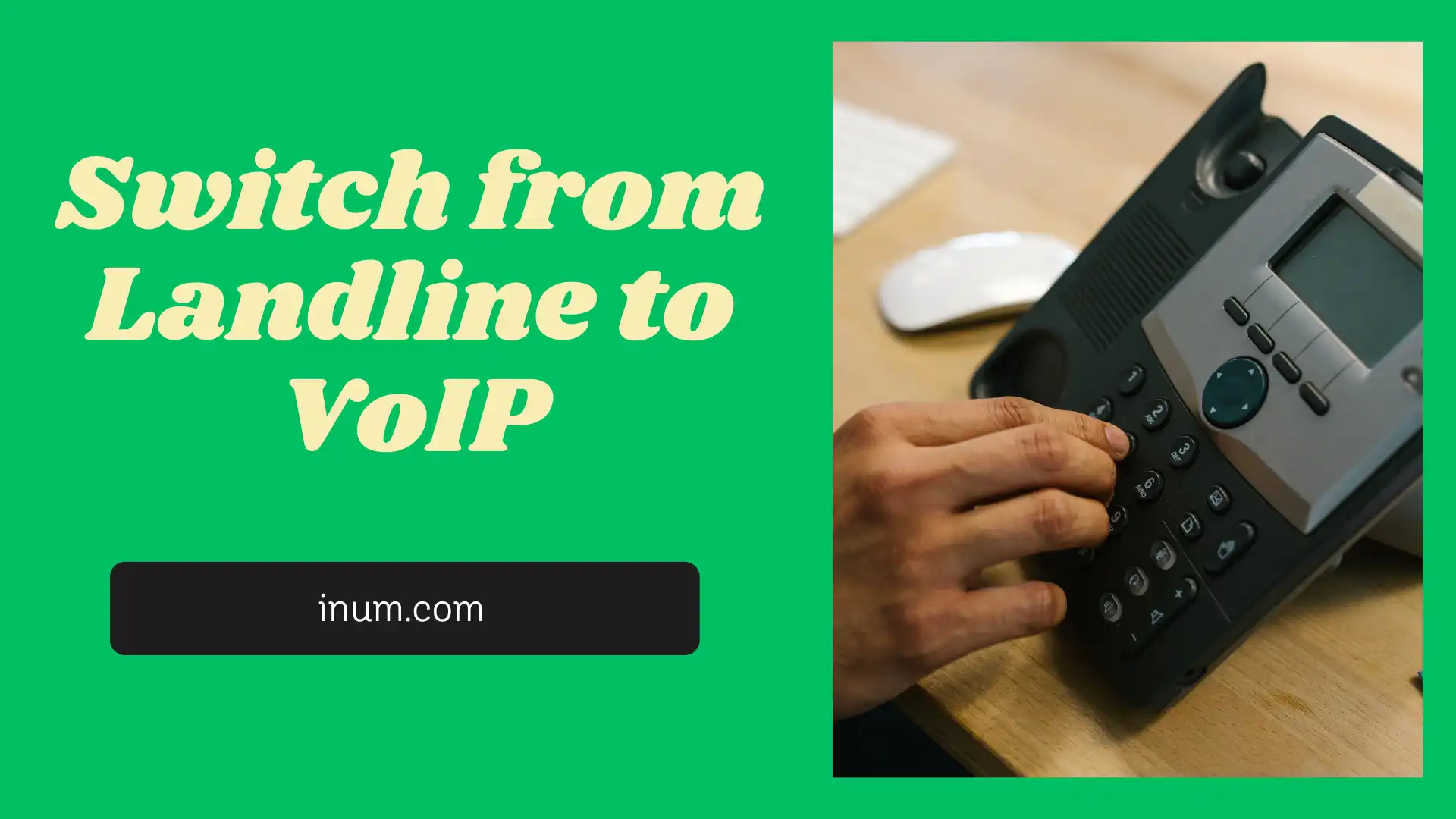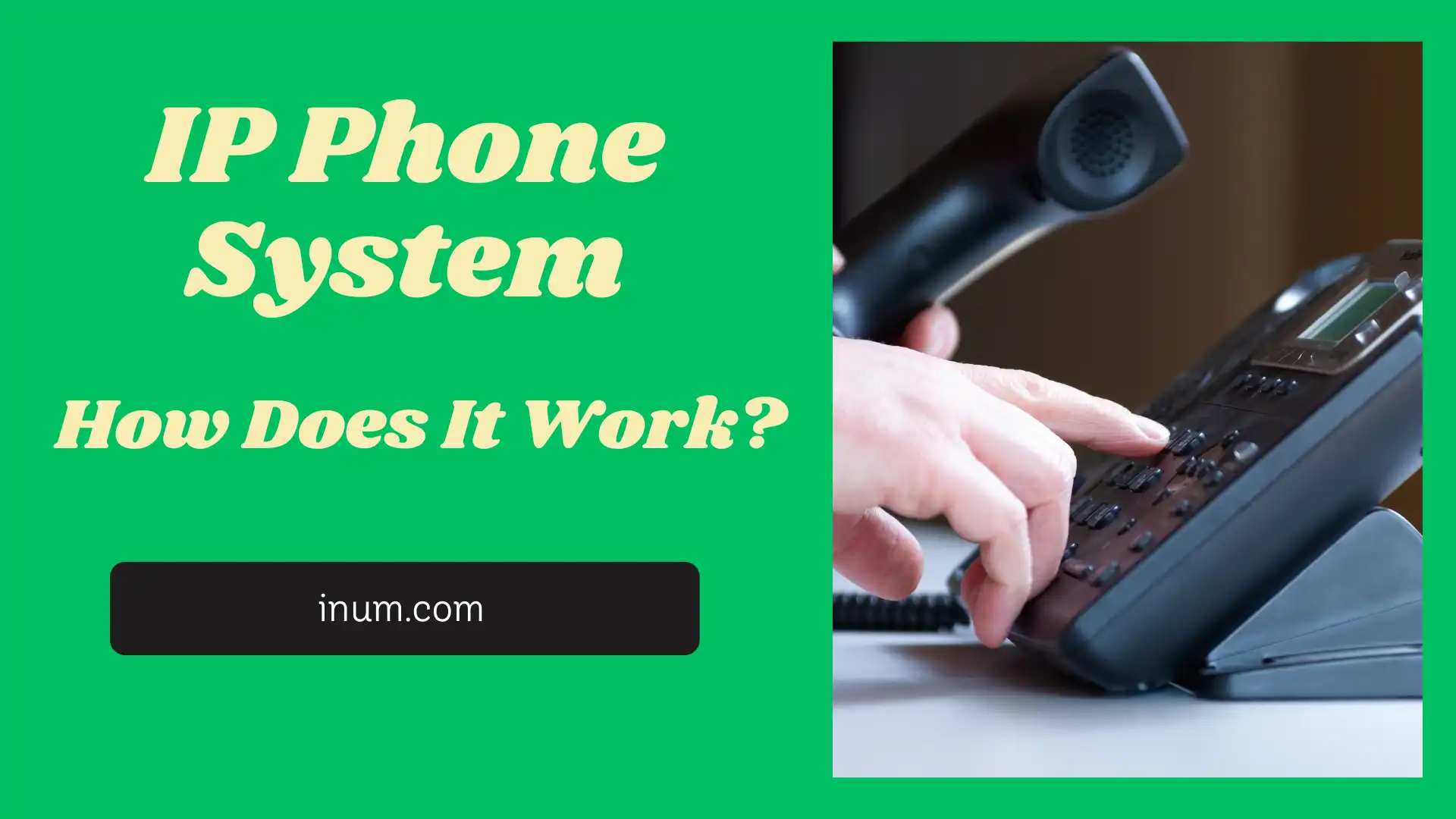VoIP stands for Voice over Internet Protocol. It is just a fancy way of saying phone calls over the internet.
Instead of using old-school landlines, VoIP sends your voice as digital signals through your internet connection. You talk into your phone or headset, the signal goes online, and the other person hears you just like a regular call.
That is it. No rocket science here.
Why Should You Care?
Because it is cheaper, more flexible, and way easier to manage than old telephone setups. Whether you are running a business or just calling grandma, VoIP makes it all simpler.
It also comes loaded with smart features that regular phones do not have.
We will dig into all of that in a bit. But first, let’s look at how VoIP actually works without the tech mumbo jumbo.
How Does VoIP Work?
Here we are breaking it down in simple words:
- You speak into your device (phone, laptop, headset).
- Your voice gets turned into data (think tiny sound packets).
- That data zooms through the internet to whoever you’re calling.
- Their device turns it back into sound.
- After all this process conversation happens.
You do not need fancy hardware. You just need:
- A good internet connection
- A device (phone, tablet, computer, or VoIP handset)
- A VoIP app or provider (like Zoom, Skype etc.)
And yes, you can still call real phone numbers, even landlines.
Everyday Examples of VoIP You Already Use
You have probably used VoIP without even realizing it.
- WhatsApp calls
- Facebook Messenger voice chats
- Zoom meetings
- Google Meet
- Skype
- FaceTime audio
All of these use the internet, not traditional phone lines. That’s VoIP in action.
Now let’s talk about what makes VoIP awesome and why more people and businesses are switching to it.
Key Features of VoIP
VoIP is not just about voice calls. It comes packed with tools that make regular phones look like dinosaurs.
Here are the good ones:
1. Call Anytime, Anywhere
Take calls at your desk, on your laptop, or walk the dog. As long as you have got the internet, you are connected.
This is huge if you travel, work remotely, or just hate being tied to one spot.
2. Call Forwarding
Do not miss a call again. Forward it to your mobile, another line, or a teammate. Super easy.
3. Voicemail-to-Email
Voicemail shows up in your inbox. Listen to it or read the transcript (if your provider supports that). No more pressing 1 to hear it again.
4. Video Calling
Many VoIP apps include video. One click and you are face-to-face. Great for meetings, check-ins, or family calls.
5. Call Analytics
Want to know how long your calls last? When do people call most? VoIP services often track that stuff.
6. Spam Call Blocking
Sick of robocalls? Some VoIP services filter spam or block known scammers for you.
7. Integration with Other Tools
Link your VoIP service to tools like Gmail, Slack, Zoom, or CRMs. Makes your work smoother and faster.
8. Call Recording
Record calls (with permission) for training, notes, or proof. Helpful for sales, support, or dealing with “he said, she said” moments.
9. Multi-Device Use
Start a call on your laptop. Finish it on your phone. Most VoIP services keep you logged in on multiple devices.
10. Security Features
Many providers offer encryption, secure data storage, and password-protected lines to keep your calls private.
Real Benefits of Using VoIP
Let’s talk about the bottom line. What is in it for you? Whether you are running a small business or just want cheaper calls VoIP has perks.
i. It is Cheaper
No need for tons of equipment or extra lines. Long-distance and international calls? Often included or dirt cheap.
Traditional phone systems? They rack up bills. VoIP does not.
ii. Easy to Set Up and Use
No need for a tech degree. Most VoIP services are plug-and-play. Download an app. Sign in. Start calling.
You do not need a phone guy to install wires or a separate server room.
iii. Scales With You
Add users, lines, or features when you need them. No need to upgrade your whole system.
Great for growing businesses or changing teams.
iv. Keeps Remote Teams Connected
Your team can work from anywhere and still stay in touch. Everyone is just a quick VoIP call away.
v. Works With What You Already Have
Use your existing devices. Phones, laptops, and headsets all work. No need to toss what you already use.
vi. Fewer Downtime Worries
If the power is out or the internet is spotty, many VoIP systems let you redirect calls to another device or number.
Business keeps going.
vii. More Control, Less Fuss
You can manage everything: users, numbers, voicemails, and settings from an online dashboard. No waiting on support for simple changes.
Who Uses VoIP?
The short answer to this question is Everyone. Let’s see in detail:
i. Small Businesses
Low cost, easy setup, and big features. So it’s the best solution for small businesses.
ii. Startups
If you want to look professional without spending a ton.
iii. Remote Teams
Calls from anywhere. Tools that keep people talking.
iv. Freelancers
Stay reachable. Use call logs. Keep it simple.
v. Big Companies
They need reliable, trackable, secure communication. VoIP checks all the boxes.
vi. Regular Folks
Want to call friends overseas without wrecking your budget? VoIP to the rescue.
Is VoIP Reliable?
Yes, as long as your internet is solid.
If your connection is bad, calls may lag or drop. But if your Wi-Fi is good and stable, you are golden.
Want a pro tip? Use a wired connection (Ethernet) if possible. It is faster and more stable than Wi-Fi.
Downsides Of VoIP
Yeah, there are a few.
- You need the internet. No connection = no calls.
- Quality varies with your network.
- Power outages can cut service unless you have got backup.
Still, for most people, the benefits outweigh the tradeoffs.
How to Choose a VoIP Provider?
So you are interested. But you may be thinking, How to pick the right one?
Ask yourself:
- Do I want it for personal or business use?
- How many users or devices do I need?
- What features matter most to me?
- What’s my monthly budget?
We suggest you compare prices, features, and support options. Many offer free trials.
What You Will Need to Get Started?
You don’t need a ton. Here is a quick starter pack:
- A good internet connection (at least 10 Mbps download).
- A device phone, laptop, tablet, etc.
- A headset (optional, but improves quality).
- A VoIP provider account.
- An app or browser access.
Once you are signed up, just log in and start making calls.
Tips to Make the Most of VoIP
- Use a wired internet connection if possible.
- Keep your software updated for best performance.
- Use call recording for training or notes (check local laws).
- Test your mic and speaker regularly.
- Check your call history and analytics to spot patterns or problems.
- Turn on voicemail-to-email so you do not miss any important client.
Final Words – Voice Over IP Service
VoIP is not just a tech upgrade it is a smarter way to handle calls in 2025. It is cheaper and more flexible. And it comes packed with tools that make life easier.
Whether you are calling across the street or across the globe, VoIP has you covered. No wires. No headaches. Just clear, simple communication from wherever you are.
FAQs – Voice Over IP Service
1. Can I call regular phone numbers with VoIP?
Yes. Most VoIP services let you call any landline or mobile number even overseas.
2. Is VoIP reliable for business calls?
Yes, as long as your internet connection is strong. Many businesses now use VoIP full-time.
3. What happens if there is a power or internet outage?
Calls would not work if the internet is down, unless you set up call forwarding to a mobile number or use a backup internet.
4. Is VoIP safe?
Most VoIP services use encryption and other tools to keep your calls private. Choose a trusted provider and follow basic security steps.
5. Can I transfer my old phone number to VoIP?
Yes, most providers let you transfer your existing number. It is called “porting” your number.
6. What are the biggest benefits of switching to VoIP?
Lower costs, mobile access, easy setup, and advanced features like voicemail-to-email, call routing, and video calling.
Read More : VoIP vs. Wi-Fi Calling: Which Is the Best Choice for Your Needs?
Read More : SMS vs RCS: What’s the Difference and Which Messaging Technology Is Better?



